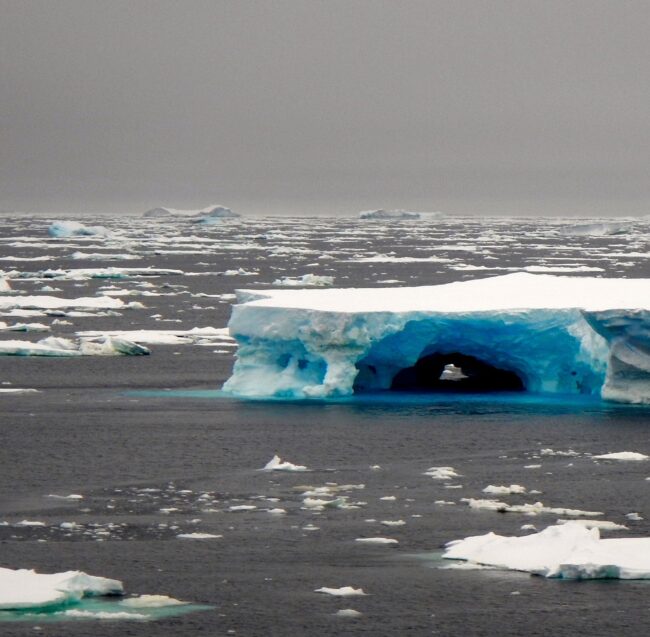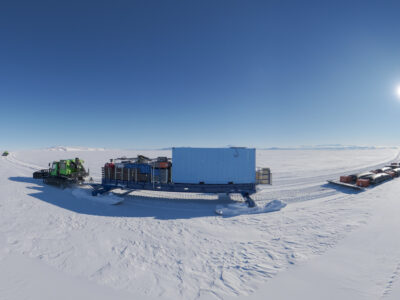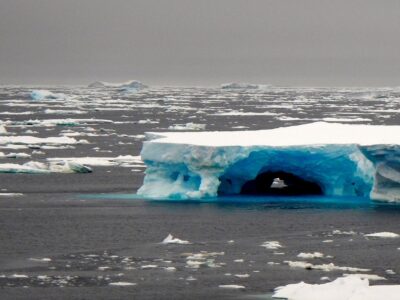West Antarctic Ice Sheet
-

Unexpected Climate Feedback Links Antarctic Ice Sheet With Reduced Carbon Uptake
New study reveals surprising link between West Antarctic Ice Sheet (WAIS) retreat and algae growth over the past 500,000 years.
-

Scientists Search for Ancient Climate Clues Beneath Antarctic Ice
An international team, including researchers from Columbia’s Lamont-Doherty Earth Observatory, is attempting to drill for mud and rocks holding critical insights about the fate of the West Antarctic Ice Sheet in our warming world.
-

‘Doomsday’ Antarctic Glacier Melting Faster Than Expected, Fueling Calls for Geoengineering
With the fate of the Thwaites Glacier still uncertain, some experts are pushing for geoengineering and more intense climate action.
-

Increase in West Antarctic Ice Sheet Melting Inevitable in 21st Century
Significant ocean warming and associated ice-shelf melting is unavoidable, even under the most ambitious future climate scenario, according to new research.
-

In Massive Project, Scientists to Probe Deposits Beneath West Antarctic Ice Sheet
Drilling into sub-ice deposits left behind during times when the Earth was warmer than today should provide insights into how a massive ice sheet will react to human-induced climate change.
-

Study of West Antarctica’s Deep Past Reinforces Vulnerability to Melting
The continent’s western ice sheet turns out to once have been much bigger than previously thought. This implies that the now smaller version could waste quickly.
-

Antarctica Glacier Named for Glasgow Climate Negotiations at COP26
The Antarctic Place Naming Commission has agreed to name glaciers on the Southern Continent after city locations of past and present climate treaties.
-

Scientists Link Climate Change to Melting in West Antarctica
A new study shows, for the first time, evidence of a link between human-caused global warming and melting of the West Antarctic Ice Sheet.
-

Short-Term Ocean Temperature Shifts Are Affecting West Antarctic Ice, Says Study
Scientists have known for some time that ice shelves off West Antarctica are melting as deep, warm ocean waters eat at their undersides, but a new study shows that temperatures, and resultant melting, can vary far more than previously thought, within a time scale of a few years.

By studying thousands of buildings and analyzing their electricity use, Columbia Climate School Dean Alexis Abramson has been able to uncover ways to significantly cut energy consumption and emissions. Watch the Video: “Engineering a Cooler Future Through Smarter Buildings“
